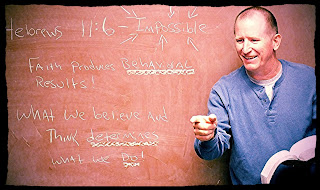 |
| Mike Hosey, An Elder |
There are many junctures in your life when you will realize that something fundamental has changed. Upon making this realization, you then change your view of the world to be in accordance with the reality that you now better understand. Then, once that view is changed, you begin to adjust your behaviors to fit the new view. For instance, sometime after a couple has children, they may come to the realization that the world does not revolve around them, and that their actions and attitudes will impact their innocent children, perhaps diminishing their children’s innocence prematurely. They begin to view the world through a lens of parenting and responsibility. When that happens, their behaviors change in subtle ways at first. Maybe they stop using foul language. Or maybe they no longer watch the same movies. Even their choice of music may change. One day, they recognize that moral consistency is very important, especially if they make an effort to view their own consistency through the eyes of their children, and they begin to insist on a life that is very different than what they were living before having children.
This is part of what the bible means when it says to be transformed by the renewing of our minds (Romans 12:2). When our minds understand something for what it really is, we will begin to adjust ourselves to conform to the true reality of things. Paul uses this principle of knowledge and understanding in his letter to the Colossians. In Colossians 4:9, Paul tells that particular church that he is sending them the man Onesimus. He calls him beloved, and tells them plainly that Onesimus is one of them. This is curious, because Onesimus was a slave that ran away from one of the members of their church. At some point, he met up with Paul, and was transformed into a believer (Philemon 1:1-25). Paul knew that some may still view Onesimus as a slave, so he reminds them this is not so, just in case that didn’t get his point in Colossians 3:11 where he told them that in the body of Christ there were no divisions in regard to such things, and that Christ is all and in all. If they were able to make that connection, their view of people would change radically, and their behaviors toward others would as well.
How do you view the people around you? Does that view align with the bible? Is your treatment of others in line with what you claim to believe?
